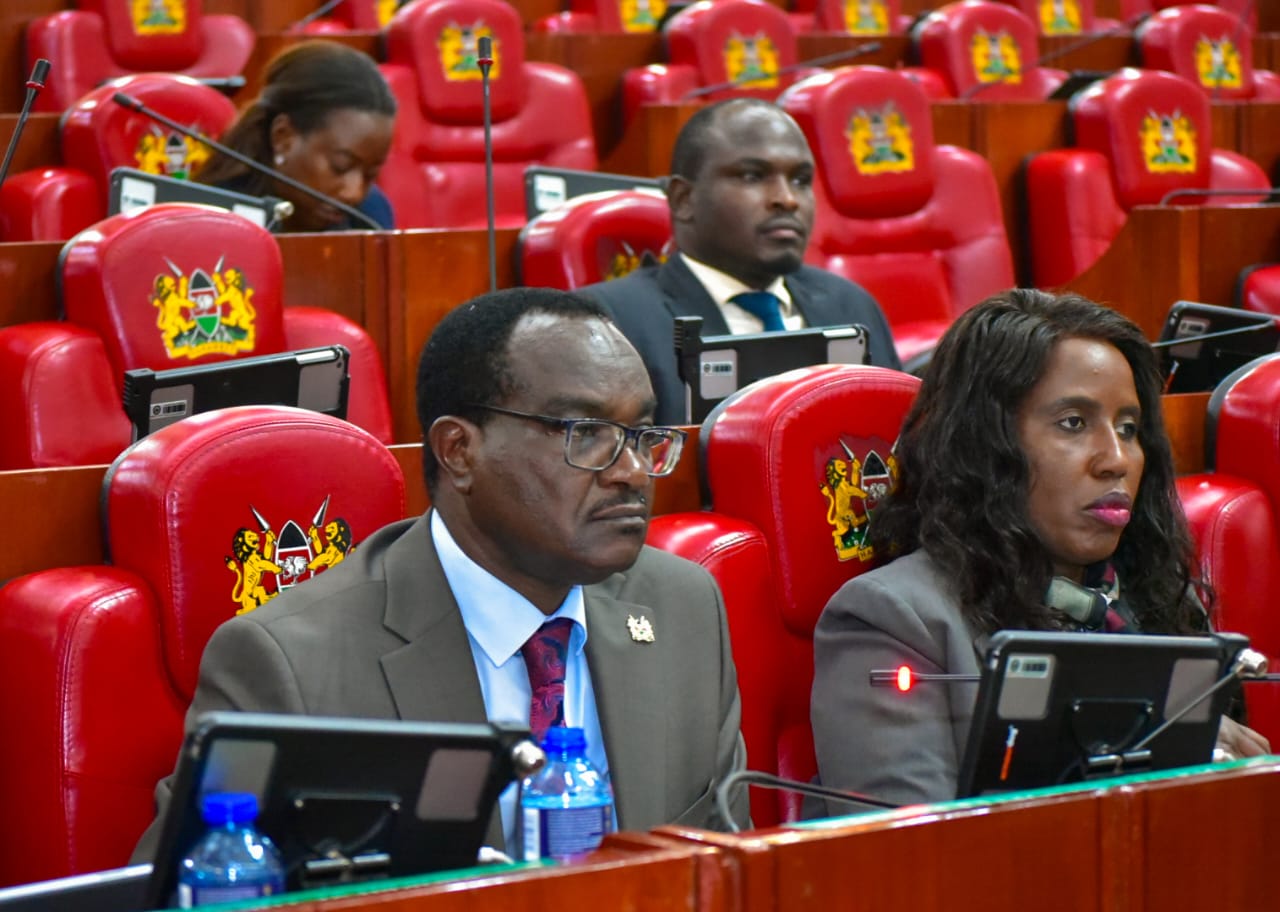Sh156 billion in unclaimed assets at risk as UFAA lacks legal framework for shares

The Performance Audit Report, covering six years of UFAA’s operations, noted that the lack of a framework for the surrender and management of non-cash assets exposes such property to risks of loss and devaluation.
An audit by the Auditor-General has revealed that Sh156 billion worth of unclaimed financial assets remains unsurrendered to the Unclaimed Financial Assets Authority (UFAA) due to the absence of a legal framework for managing non-cash assets such as shares.
The Performance Audit Report, covering six years of UFAA’s operations, noted that the lack of a framework for the surrender and management of non-cash assets exposes such property to risks of loss and devaluation.
More To Read
- Senators question Busia’s Sh4.9 million consultancy for already classified hospital
- Auditor General flags public universities over Sh62 billion wage bill
- Crisis: Audit uncovers deep funding, staffing woes in public hospitals
- Auditor General flags Sh475 million climate summit grant signed four months after event
- Mounting debt could halt vital services at KNH, MTRH and KUTRRH - Nancy Gathungu
- Fraud drains Kenya’s pension and health insurance funds, citizens left struggling
Auditor General Nancy Gathungu stated that the authority has no mechanism to receive and safeguard more than 1.7 million units of non-cash assets in the form of shares, which remain with their original holders.
“The authority did not have a mechanism to receive and secure management of the 1.7 million units of non-cash assets in the form of shares, which remained in the custody of their original holders on account of the UFAA not being allowed under the law to operate a Central Depository and Settlement Corporation (CDSC) account, which is necessary for facilitating the transfer of unclaimed shares,” Gathungu said in the Performance Audit report.
“The authority does not have a framework for safeguarding unclaimed non-cash assets, such as shares, which have remained with the original holders. This poses a risk of loss and devaluation.”
The audit assessed whether UFAA’s measures effectively ensured compliance among asset holders, safeguarded surrendered property, and facilitated the reunification of unclaimed assets with their rightful owners.
Property presumed abandoned
Unclaimed financial assets refer to property presumed abandoned and transferred to the authority, where legitimate owners can claim them. These include cash assets such as dormant bank accounts, unclaimed dividends, deposits from collapsed financial institutions, unclaimed insurance benefits, utility deposits, and uncollected prize money. Non-cash assets include safe deposit boxes and gift certificates. Such assets often arise from deaths, migration, or a lack of public awareness regarding the dormancy periods of financial instruments.
Gathungu disclosed that as of August 1, 2024, the authority had received Sh64 billion, representing only 16.4% of the projected Sh397 billion in unclaimed financial assets, according to the 2018 Baseline Survey.
“Section 44(2) of the Unclaimed Financial Assets Act, 2011 requires holders of unclaimed financial assets to deposit the asset into the Trust Fund at the Central Bank of Kenya. The authority then invests these assets in government securities and uses a portion of the income to fund operations,” she said.
However, the Auditor-General noted that UFAA’s enforcement mechanisms have not been effective in compelling asset holders to surrender unclaimed property.
“The enforcement mechanisms used by the authority have not been effective in ensuring that holders of unclaimed financial assets surrender them to the authority,” Gathungu said.
“This is evidenced by the fact that a significant portion of unclaimed financial assets have not been surrendered by holders and the authority has not recovered unclaimed financial assets identified during the holders’ compliance audits.”
Rightful owners
The report further noted that UFAA’s failure to secure these assets denies rightful owners the chance to reclaim them and prevents the authority from generating investment income from the funds.
During the six-year review period, Gathungu revealed that UFAA generated Sh13.1 billion in investment income.
“While Sh3.4 billion was used to finance the authority’s operations, Sh9.6 billion, representing 73.37% of the total investment income, was retained within the Trust Fund for reinvestment. This investment strategy resulted in a continuous increase in unutilised investment income,” she said.
She added that the audit found no policy or legal framework guiding the full utilisation of investment income for long-term socio-economic development.
The report also highlighted that UFAA has not successfully reunited a large portion of the unclaimed financial assets held in the Trust Fund with their rightful owners.
Inadequate mechanisms
“The mechanisms used by the authority to locate and notify apparent owners of unclaimed financial assets are not adequate to ensure that the assets are reunited for personal and economic benefit,” Gathungu said.
She also criticised the claims process as inefficient and burdensome.
“The mechanisms used by the authority to process claims lodged by apparent owners are inefficient. The claim process is both costly and time-consuming, especially to low-value claimants, since the process is applied uniformly to all claims regardless of the asset value,” she noted.
As a result, most surrendered assets remain idle, denying rightful owners access to their property and limiting their contribution to the economy.
The report further revealed that as of August 2024, UFAA did not have updated data on holders of unclaimed financial assets or the value of assets held, raising further concerns about the authority’s capacity to manage and track unclaimed property effectively.
Top Stories Today











































